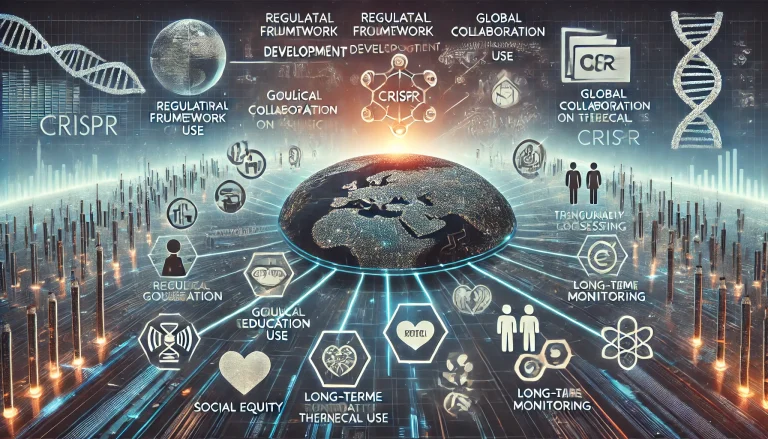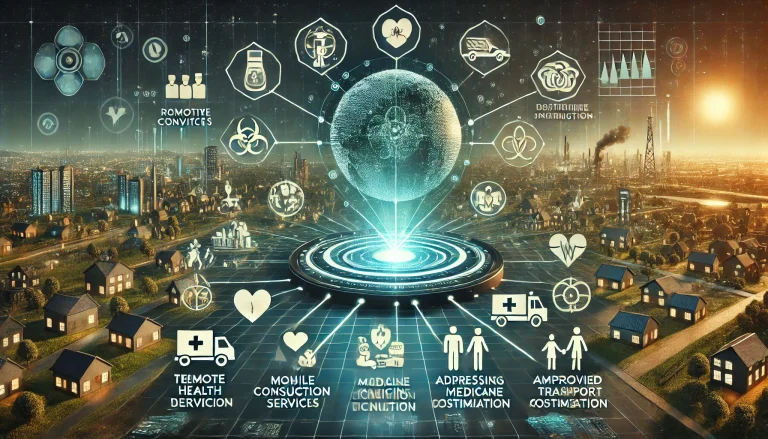Problem Statement
The healthcare equipment supply chain faces significant disruptions, particularly during global crises such as the COVID-19 pandemic. These disruptions expose critical vulnerabilities, leading to shortages of essential medical supplies like ventilators, personal protective equipment (PPE), and other life-saving devices. When a sudden spike in demand occurs, as seen during pandemics or natural disasters, the existing supply chain infrastructure struggles to keep pace, resulting in delayed deliveries, increased costs, and a breakdown in the distribution of critical supplies. This can have severe consequences, delaying critical care and jeopardizing the safety of healthcare workers and patients alike.
The global nature of healthcare supply chains further complicates the issue, as dependencies on international suppliers, logistical challenges, and varying regulatory requirements can all contribute to bottlenecks and shortages. The problem is compounded by just-in-time manufacturing models, which, while efficient under normal circumstances, leave little room for flexibility in times of crisis. Furthermore, hoarding behaviors and export restrictions by countries seeking to secure supplies for their own populations can exacerbate shortages elsewhere. Addressing these challenges requires a robust, adaptable, and resilient supply chain that can respond swiftly to crises, ensuring the uninterrupted flow of essential medical supplies. This involves diversifying supply sources, improving supply chain transparency, increasing domestic production capacities, and developing strategic reserves to buffer against future disruptions.
Pain Points
- Supply Chain Disruptions: Global crises causing interruptions in the flow of essential medical supplies.
- Shortages of Critical Supplies: Lack of ventilators, PPE, and other medical equipment during peak demand.
- Dependence on Global Suppliers: Vulnerability due to reliance on international suppliers and manufacturers.
- Logistical Challenges: Transportation and distribution bottlenecks during crises.
- Regulatory Hurdles: Variations in international regulations complicating the supply chain.
- Just-in-Time Manufacturing: Limited flexibility and inventory buffers in crisis situations.
- Hoarding and Export Restrictions: Countries restricting exports and hoarding supplies, worsening shortages.
- Delayed Critical Care: Supply shortages leading to delays in patient treatment and care.
- Safety Risks for Healthcare Workers: Inadequate PPE putting healthcare workers at risk.
- Increased Costs: Surge in prices due to supply shortages and logistical challenges.

Future Vision
Our platform envisions a future where the healthcare equipment supply chain is resilient, adaptable, and capable of withstanding global crises without compromising the safety and well-being of patients and healthcare workers. Leveraging advanced technologies such as AI, blockchain, and IoT, the platform will provide real-time visibility and transparency across the entire supply chain, enabling stakeholders to monitor inventory levels, track shipments, and predict potential disruptions before they occur. AI-driven demand forecasting tools will help healthcare providers and suppliers anticipate surges in demand, allowing them to allocate resources more efficiently and avoid shortages.
The platform will also promote the diversification of supply sources by connecting healthcare providers with a global network of vetted suppliers, reducing dependence on single-source suppliers and minimizing the risk of disruptions. To enhance domestic production capabilities, the platform will facilitate collaborations between manufacturers, government agencies, and healthcare organizations to increase the production of essential medical supplies during crises. Strategic stockpiling and reserve management tools will ensure that critical supplies are available when needed, preventing delays in care. By creating a robust and interconnected supply chain ecosystem, our platform will help healthcare providers deliver uninterrupted care, even in the face of global challenges, while safeguarding the health and safety of both patients and healthcare workers.
Use Cases
- Real-Time Supply Chain Monitoring: AI-driven tools for tracking inventory levels and shipments.
- Demand Forecasting: Predicting surges in demand for critical medical supplies.
- Supplier Diversification: Connecting healthcare providers with a global network of suppliers.
- Blockchain for Transparency: Ensuring traceability and authenticity of medical supplies.
- Domestic Production Collaboration: Facilitating partnerships to increase local manufacturing capacity.
- Strategic Stockpiling: Tools for managing and distributing reserve supplies.
- Crisis Response Planning: Developing and implementing crisis-specific supply chain strategies.
- Regulatory Compliance Management: Navigating international regulations and export restrictions.
- Logistics Optimization: Enhancing transportation and distribution efficiency during crises.
- Safety Assurance: Ensuring the availability and distribution of PPE to protect healthcare workers.
Target Users and Stakeholders
- User: Supply Chain Managers, Procurement Teams, and Healthcare Executives
- Age Group: 30-60 years
- Gender: M/F
- Usage Pattern: Regular usage for managing healthcare supply chains, monitoring inventory, and responding to crises
- Benefit: Improved supply chain resilience, reduced shortages, and enhanced safety for healthcare workers and patients
- Stakeholders:
- Healthcare Providers: Hospitals, clinics, and medical facilities requiring continuous supply of medical equipment
- Manufacturers: Companies producing medical devices and PPE
- Government Agencies: Regulatory bodies overseeing healthcare supply chains and crisis response
- Logistics Providers: Companies responsible for the transportation and distribution of medical supplies
- Healthcare Workers: Frontline staff relying on PPE and medical equipment for their safety and patient care
Key Competition
- McKesson: Provides supply chain solutions for healthcare providers, including medical supplies distribution.
- Cardinal Health: Offers supply chain services and medical products for healthcare facilities.
- Medline: Supplies medical equipment and healthcare products with a focus on efficient distribution.
- Owens & Minor: Specializes in healthcare logistics and supply chain management.
- Henry Schein: Distributes healthcare products and services to medical professionals.
Products/Services
- McKesson Supply Chain Solutions: Comprehensive supply chain management for healthcare providers.
- Cardinal Health Distribution Services: Efficient distribution of medical products to healthcare facilities.
- Medline Medical Supplies: Diverse range of medical equipment with a focus on supply chain efficiency.
- Owens & Minor Healthcare Logistics: Specialized logistics services for the healthcare sector.
- Henry Schein Medical Products: Wide range of healthcare products for medical professionals.
Active Startups
- Huma: Focuses on digital health solutions, including supply chain management for medical equipment.
- Terso Solutions: Develops RFID-enabled supply chain management systems for healthcare.
- Modum: Provides blockchain solutions for supply chain transparency in healthcare.
- Caresyntax: Offers surgical equipment management and supply chain optimization tools.
- LeanTaaS: Specializes in AI-driven resource optimization for healthcare providers.
- Everlywell: Innovates in direct-to-consumer medical testing and supply chain efficiency.
- Zipline: Uses drones to deliver medical supplies in remote or crisis-affected areas.
- Wellthie: Offers healthcare supply chain solutions focused on cost transparency.
- HatchMed: Provides innovative healthcare equipment with a focus on streamlined supply chains.
- DHL Healthcare: Offers specialized logistics and supply chain solutions for the healthcare industry.
Ongoing Work in Related Areas
- AI and Machine Learning: Enhancing demand forecasting and inventory management in healthcare supply chains.
- Blockchain Technology: Improving transparency and traceability in the medical equipment supply chain.
- IoT Integration: Implementing real-time monitoring of medical supplies and equipment.
- Digital Health Solutions: Developing platforms for remote supply chain management and crisis response.
- Public-Private Partnerships: Collaborating to increase domestic production of critical medical supplies.
Recent Investment
- Huma: $130M in Series C funding led by Leaps by Bayer, May 2021.
- Terso Solutions: $12M in Series B funding led by Boston Millennia Partners, February 2020.
- Modum: $2.5M in seed funding led by Zühlke Ventures, September 2018.
- LeanTaaS: $40M in Series C funding led by Insight Partners, December 2019.
- Zipline: $190M in Series C funding led by Baillie Gifford, May 2019.
Market Maturity
The market for healthcare supply chain solutions is rapidly maturing, driven by the need for resilience and adaptability in the face of global crises. Established companies like McKesson, Cardinal Health, and Medline provide comprehensive supply chain services, while innovative startups like Huma, Terso Solutions, and Modum are advancing the field with cutting-edge technologies such as AI, blockchain, and IoT. Significant investments in digital health, logistics optimization, and public-private partnerships are transforming the industry, enabling more efficient and effective supply chain management. As the market continues to evolve, we expect to see more integrated and advanced platforms that provide end-to-end support for healthcare supply chain resilience, ensuring that healthcare providers can deliver uninterrupted care even during times of crisis.
Summary
The healthcare equipment supply chain faces significant disruptions, particularly during global crises like the COVID-19 pandemic. Shortages of essential medical supplies, such as ventilators and personal protective equipment (PPE), expose the vulnerabilities in global supply chains, delaying critical care and jeopardizing the safety of healthcare workers and patients. Our proposed platform leverages AI, blockchain, and IoT to provide real-time visibility, demand forecasting, and supply chain diversification, ensuring resilience and adaptability in the face of crises. Key pain points include supply chain disruptions, shortages of critical supplies, dependence on global suppliers, logistical challenges, regulatory hurdles, just-in-time manufacturing, hoarding and export restrictions, delayed critical care, safety risks for healthcare workers, and increased costs.
Target users include supply chain managers, procurement teams, and healthcare executives, with stakeholders encompassing healthcare providers, manufacturers, government agencies, logistics providers, and healthcare workers. Key competitors like McKesson, Cardinal Health, Medline, Owens & Minor, and Henry Schein offer various supply chain solutions, while startups such as Huma, Terso Solutions, Modum, Caresyntax, and LeanTaaS are driving innovation in this space. Recent investments highlight significant interest and growth potential in platforms addressing healthcare supply chain resilience.
By addressing these challenges and leveraging advanced technologies, our platform aims to strengthen the healthcare equipment supply chain, ensuring uninterrupted care and safeguarding the health and safety of both patients and healthcare workers.



